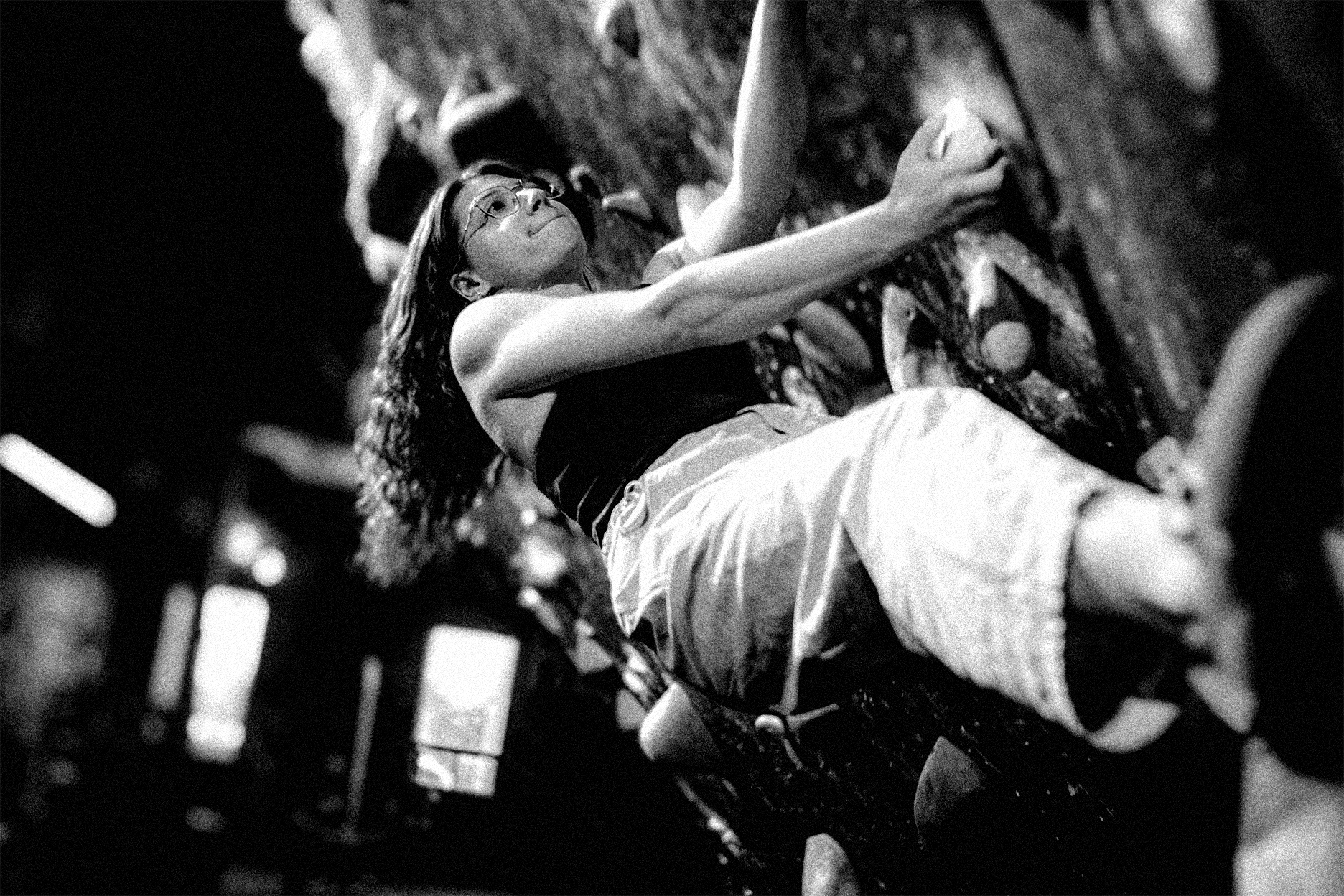Obviously, when we look at people who perform exceptionally well in our sport, we might think it’s mainly due to their incredibly strong fingers or their outstanding athleticism. We often overlook the mental aspect of performance. It’s certainly much harder to train, but everyone can make progress. Here are some tips that could help you work on the mental side of your climbing.
The Power of Suggestion
Does it often happen that you stand in front of a boulder problem at the gym, look at it, and think, “I could never climb that”? Without even giving yourself a chance to try, you’ve already created a limitation. You’re not alone, don’t worry. But now that you’re aware of it, it’s a great opportunity to try and push those limits. Does that V6 look tough? It doesn’t cost you anything to try the moves—you might be surprised. Intimidated by that V4? All the more reason to check it out.
Try Hard. Really Hard
Sorry to break it to you, but you’re probably not trying as hard as you think. The mind (and body) seeks comfort, and self-preservation instincts often prevent you from pushing beyond a certain limit. I remember a video of David Wetmore on a route at Rumney, where he mentioned that he would almost lose consciousness on the last move of his project because he was giving it his all. Should you do the same and pass out in the middle of Bloc Shop after trying your project? We don’t recommend that. But you can train yourself to grip holds harder and make a real effort. One example that helped me the most: a climber in a podcast talked about putting on his “war mask” before launching into his boulder problem, and he mentioned imagining gripping the holds as if he had to close his entire fist as tightly as possible. Of course, do this with caution, because there are inherent risks of injury. You might surprise yourself by triggering something that helps you send your project.
Mindful Climbing
I know, it sounds a bit “woo-woo”… but it’s worth trying, you might be surprised. Essentially, it involves paying attention to your thoughts while you climb. When you reach the crux moves, do you tell yourself, “This is going to be hard”? Does a move scare you? Why is this important? Because your internal dialogue affects your climbing. Just being aware of what you’re telling yourself mentally will help you see where you’re limiting yourself.
Hesitation You Shall Avoid
It’s a telltale sign. Watching someone start a move, then come down, try again without completing the move, come back again, only to fall. And maybe that person could have finished the boulder if they hadn’t wasted energy hesitating! Of course, it’s easier said than done. But if you set an intention—whether for a whole session or just one try—to keep climbing even if you’re unsure about the beta, again, you might be surprised by the results. All of this helps refine your technique, your problem-reading skills, and in the long term, reduces hesitation!
Obviously, all this takes time and energy. That’s why it’s easier to incorporate these tips gradually—use them from time to time for part of your gym session. The goal is to develop habits you can use when the time is right.


